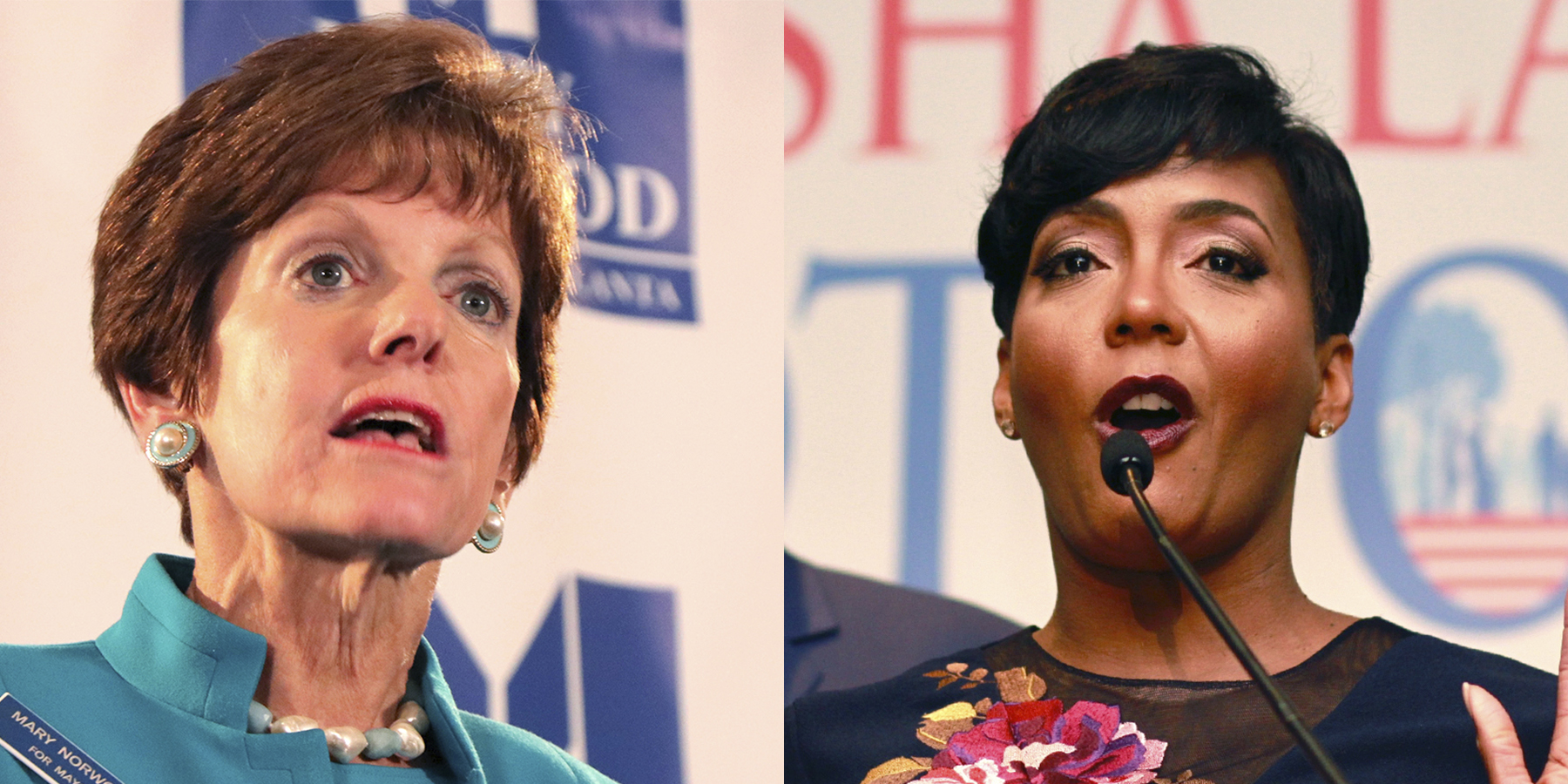Local elections in Atlanta are nonpartisan, meaning the city doesn’t hold primaries and ballots don’t mention whether candidates are Democrats or Republicans.
But that hasn’t stopped party affiliation from becoming an issue in this year’s mayoral election.
Like us on Facebook
It was clear last week when five Democratic state leaders stood together in the Historic Fourth Ward Park to endorse Keisha Lance Bottoms for mayor.
State Rep. David Dreyer said the choice was urgent, given national politics.
“In a time like this, I’m going to stand with a strong, steady Democrat, like Keisha Lance Bottoms,” Dreyer said.
At least, that’s the distinction Bottoms and the Democratic Party of Georgia are working to make between her and her opponent, Mary Norwood.
The party reiterated the point in a recently released ad.
“Is Mary Norwood a Republican?” the narrator asks. “She voted in 12 Republican primaries, and her treasurer is an unabashed Trump supporter.”
The ad ends with the question: “Should the mayor of Atlanta be from the party of Trump?”
Norwood has repeatedly rebuffed the claims.
When asked by Bottoms about her Republican voting history in a recent WABE debate, she maintained she is a progressive independent.
She said she’s voted for candidates of both parties, including Hillary Clinton in the last election.
“I have never been a member of the Republican Party,” Norwood said. “And I want you to understand, Ms. Bottoms, that national politics have no place in Atlanta, Georgia.”
Atlanta has a strong tradition of nonpartisan elections, according to Georgia State Professor Emeritus Harvey Newman. It dates back to municipal reforms around the turn of the century.
Norwood’s party affiliation became an issue when she ran in 2009, however, and Newman said he’s not surprised to see the question of political identities come back in full force for this election.
“We are pretty badly polarized as a nation, and the city of Atlanta happens to be a bastion of Democratic politics,” Newman said.
He said in this race the strategy of painting one candidate as more loyal to Democratic values is likely aimed at specific voters in the city.
“I would suspect it is at root an appeal to voters in East Atlanta, in Old Fourth Ward, in the Westside,” Newman said.
Those are areas that turned out for progressive candidates like Cathy Woolard or Vincent Fort in the general election and will be key in the runoff on Dec. 5.










